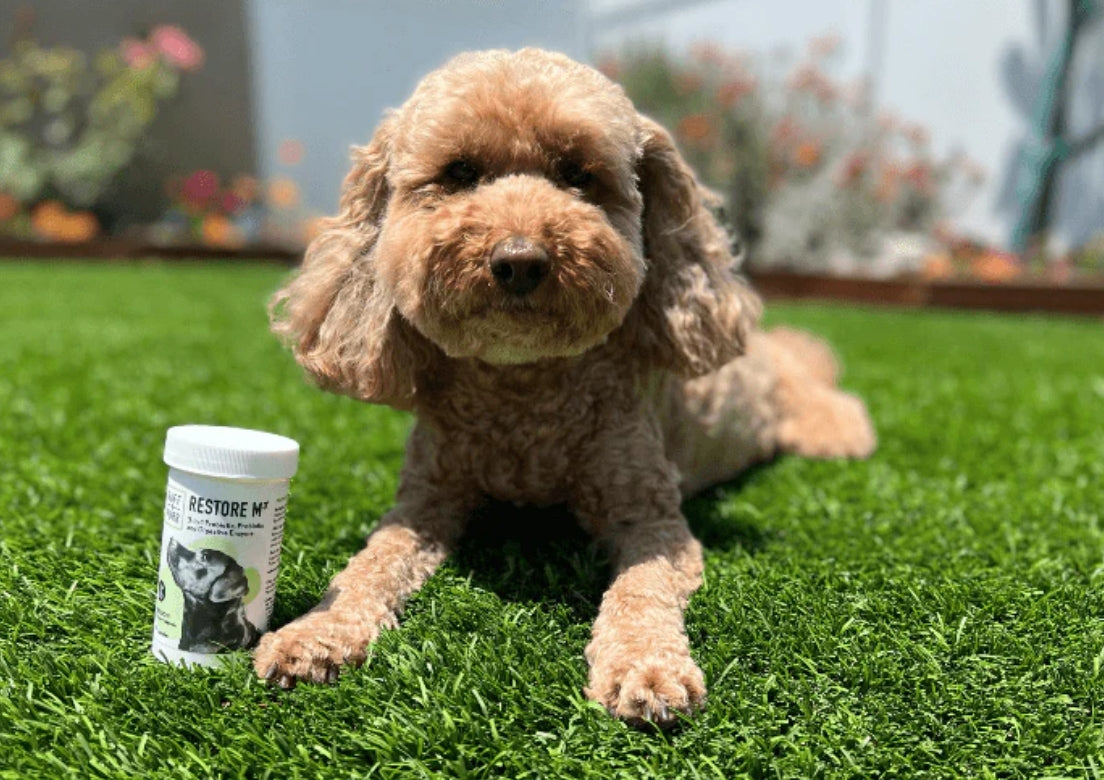Pets and fireworks can be a challenging combination. Many animals are scared of the loud noises, bright lights, and unpredictable nature of fireworks displays. It's important for us to take precautions to ensure their safety and well-being during independence day events. Below are some fun facts about their capacity to hear and what you can do to keep them safe during this Independence Day.
Dogs & Cats - Superior Hearing
Did you know that dogs can hear sounds four times closer than us humans? They can also hear in a broader frequency range (from 60Hz to 45,000Hz) and even detect ultrasonic sounds. In comparison, humans typically can hear in a range of 20Hz to 20,000Hz Cats are even more impressive with their hearing with a top end hearing range of 85,000Hz. In addition, our four-legged friends can also distinguish between sounds of objects similar, such as the sound of your car, versus that of a friend’s. This may be why your pet could be at your door to greet you before they even hear your garage door trigger or footsteps at the door.
July 4th Preparation with Your Pet
With this in mind, it should be no surprise that all animals, both wild and domestic, exhibit a high amount of fear around fireworks which makes the July 4th holiday weekend one in which us pet owners must plan ahead. Here are some tips to make this holiday a bit easier for your pawed pal.
-
Provide Distractions. This may be a bit harder for our feline friends, unless they love catnip, but you can always make a lick mat for your pup and freeze a small amount of almond or peanut butter (1tsp. to 1 tbsp., depending on the size of your dog) and baked sweet potato onto a pre-prepped lick mat which has been thrown in the freezer. You can also pull out a puzzle or their favorite toy in order to distract them from any type of noise, before it starts.

-
Keep them Indoors. Did you know that during the July 4th weekend more pets go missing than any other night of the year. Many of these cases can be avoided by keeping our pets inside of our homes, well before the fireworks start. It’s often that people have home-fireworks that get set off before or after larger city and municipal shows, so be aware of this and keep your pets inside from early in the afternoon if possible.
-
Create a Safe Space. If you will not be home with your loved one, you might want to consider creating a safe space for them. Whether a kennel, a bedroom or bathroom, having a smaller space for your pet to be left in can be safer. A lot of times our pets will naturally look for a small space to hide in, but if you know that fireworks and other loud sounds can create stress, you may want to find a place in your home that they will feel comfortable in. This also makes them less likely to injure themselves if they are to run around in a panic.

-
Stay calm and relaxed. Dogs and cats are energetic creatures and bonded to their humans. As such, they pick up on our emotions and if we are fearful or anxious, they will mimic us. This also means picking up your pet to comfort and hold them can actually create more fear. The best thing to do is to act calm and not make a fuss over them.
- Desensitize. This is one you can practice for next year especially. Many dog trainers now recommend playing the sounds of fireworks at a low to moderate level while you have other things going on in your home in order to desensitize your pawed pal. There are many great YouTube channels where you can get the sounds for free or even learn the best approaches.
As always, you know your pet best. If you have an anxious or fearful pet, it’s always best to stay home with them, or at the least ensure they are left in a safe space. Remember you can also practice desensitization exercises for the next time July 4th rolls around.
Good luck and Happy 4th!
References
https://www.nature.com/articles/s41598-020-72841
https://www.chewy.com/lickimat-wobble-slow-feeder-dog-bowl/dp/654558
https://www.google.com/search?client=firefox-b-1-d&q=nina+ottosson+dog+puzzles



